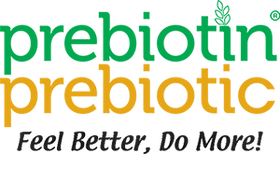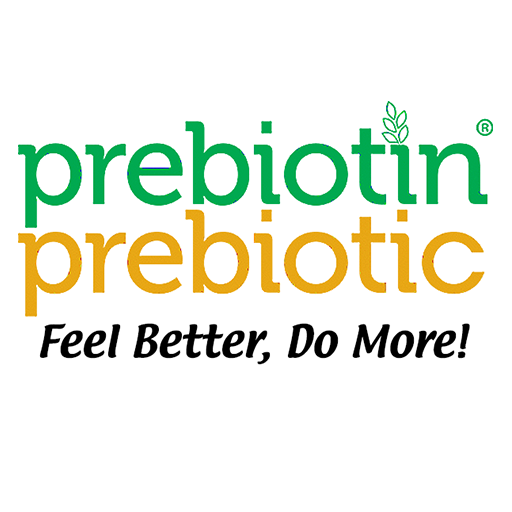The Problem with Emulsifiers: Part 2

What’s the problem? The dark side of specific emulsifiers.
The FDA has designated common emulsifiers like polysorbate 80 and carboxymethylcellulose or cellulose gum (CMC) “generally regarded as safe” or GRAS. This designation is coveted because it indicates that the FDA considers GRAS substances non-toxic and non-carcinogenic. However, the problem is that emulsifiers have not consistently been tested for side effects.
Based on the recent work of researchers at the Institute for Biomedical Sciences at Georgia State University in Atlanta, we now know some emulsifiers are not benign additions to our food chain. (Chassaing et al. 2015) The researchers studied the impact of mice being fed polysorbate 80 and cellulose gum (CMC) in their drinking water and food. They found that adding specific emulsifiers to the mice’s food alters the gut microbiota to induce intestinal inflammation. Once the mice stopped receiving these emulsifiers, their gut microbiota gradually returned to normal.
Researchers linked emulsifier-induced inflammation to the development of obesity, type-2 diabetes, cardiovascular and liver disease, and inflammatory bowel diseases like Crohn’s disease and ulcerative colitis.
According to a recent NYT article on the impact of food additives on the gut microbiome, even the growing virulence of clostridium difficile (or C. diff) can be linked to the increased use of a common food stabilizer, trehalose. While C. diff, a severe illness of the gut that can quickly become fatal, is commonly associated with the overuse of antibiotics, trehalose feeds the most toxic strains of C. diff, escalating the severity of the infection.
Researchers linked emulsifier-induced inflammation to the development of obesity, type-2 diabetes, cardiovascular and liver disease, and inflammatory bowel diseases like Crohn’s disease and ulcerative colitis.
A more recent study with mice (Viennois et al. 2017) published in the journal Cancer Research, also led by the researchers in Georgia State University’s Institute for Biomedical Science, shows that regular consumption of dietary emulsifiers can alter intestinal bacteria in a manner that promotes intestinal inflammation and colorectal cancer.
This type of research is critical in increasing awareness that the intestinal microbiota play a role in driving colorectal cancer, the fourth leading cause of cancer-related deaths worldwide.
Carrageenan
Carrageenan is another controversial emulsifier that has been studied for carcinogenetic effects. It has been linked to gastrointestinal conditions since the 1960s, but continues to be used in a wide variety of foods and healthcare products. Carrageenan is derived from red seaweed and is found in many “health” foods, from soy and coconut milks, to yogurt, nondairy deserts, cottage cheese, and even “organic” deli meats.
The list is endless because carrageenan has multiple properties as a food additive: it is an excellent binder, thickening agent, and stabilizer. While some researchers disagree about the impact of this emulsifier (Greger 2014), other researchers are more definite. According to Alip Borthakur and team (Borthakur 2012), “Carrageenan, a sulfated polysaccharide that is widely used as a food additive, induces inflammatory responses in animal models and human cells.”
With so much research relating carrageenan to an inflammatory response, the National Organics Standards Board finally voted to remove carrageenan from the list of substances allowed in organic food in November 2016, although the United States Department of Agriculture (USDA) has the final say and will rule on the additive by the end of 2018.
Currently, some grocery chains like Trader Joe’s and Whole Foods have pulled some (but not all) food products with carrageenan off the shelf (including some nut milk products), and European regulators have removed carrageenan from baby formula. [Check Cornucupia.org for a list of products with and without carrageenan.]

How do emulsifiers impact the gut microbiota?
Many research findings indicate that regularly ingesting emulsifiers alters the microbiota. The mucous layer that separates the gut bacteria from outside cells thins. When the mucous liner is compromised, bacteria actually reach and are in contact with epithelial gut cells, causing an activation of the immune system and secretion of inflammatory mediators.
The result? Gut permeability or leaky gut syndrome, with inflammation that can lead to food allergies, inflammatory bowel disease (in those with a genetic disposition), celiac disease, and increased obesity and related disorders, from type-2 diabetes to cardiovascular and liver disease.
Unwelcome toxic load in our daily diet
As food products are more processed, they now include a heavy load of food additives that has increased obesity and disease. Emulsifiers that damage the gut microbiome microbiota are just part of this unwelcome toxic load in our daily diet. Also damaging to the gut microbiome are some modern food and medical trends of the last 50 years.
Modern Trends Causing Damage to the Gut Microbiome
- Removal of eggs as an emulsifier—with eggs considered a cholesterol-raising food for so many years and only offering short-term food stabilizing, food manufacturers substituted other emulsifiers, many synthetic, which may have contributed to the growing system-wide inflammation that increases disease risk and obesity. The latest nutritional guidelines no longer restrict eggs since they do not appear to raise blood cholesterol after all, so this may encourage the return of the egg as a more natural emulsifier.
- Fear of fats—the medical community’s recommendations for people to cut back on fat and eggs may have spurred the shift to increased carbohydrate consumption and to low-fat foods, that usually replace fat with more sugar, starch, and artificial emulsifiers that impact the microbiota.
- Artificial sweeteners like saccharine, aspartame, and sucralose have also been shown to disrupt microbes and cause elevated blood sugar in mice and humans.
- Increased use of antibiotics—since the mid-20th century, children and adults routinely get antibiotics for a wide range of illnesses. Since antibiotics severely impact the levels of “good” bacteria in our systems, scientists also link antibiotic use with inflammation leading to the epidemic of obesity and the growth of “bad” bacteria, such as c. difficile.
Continuing research
Researchers like Chassaing, Gewirtz, and Viennois will continue to investigate how emulsifiers affect humans. Currently, research is being conducted on natural emulsifiers like lecithin to see if they have the same effect on mice that chemical emulsifiers do. Lecithin is the natural emulsifier commonly used to make mayonnaise creamy. It is most often derived from soybeans as well as sunflower and grape seed. Some lecithin may be derived from egg yolks and other animal sources. Other natural emulsifiers to be tested include locust bean gum and guar gum.
In addition to studies with mice, Chassaing is also enrolling volunteers for the first human trial to look at the effects of emulsifiers on gut and metabolic health.
But more studies, especially with human subjects, are necessary. According to the NYT article, one prominent researcher who studies emulsifiers and mice states that right now, “the Food and Drug Administration isn’t organized to address diseases that might stem from long-term tweaking of our microbes and the chronic inflammation that ensues. It’s focused instead, he said, on acute toxicity — how much of something makes you sick — and mutagenesis, its ability to trigger cancer.”
If more studies focus on food additives and obtain results that mirror the mice studies, some emulsifiers may be singled out as driving the epidemic of obesity and a range of diseases associated with chronic gut inflammation.
How to improve your gut microbiota
Through all the flip-flopping on the part of the science community, most scientists now agree that chemical additives to our food supply can wreak havoc with the levels and the diversity of the bacteria in our gut.
Despite these concerns, avoiding emulsifiers in foods is almost impossible. We would have to cook only with fresh ingredients (and never eat out), and we’d have to avoid most vitamins and even medicines and pills. It is possible to take small steps to reduce the amount of processed foods in your diets and to take proactive steps to improve your microbiome.
Specific steps that can improve your gut microbiome:
- Avoid overeating. Eat smaller portions; avoid eating late at night; avoid empty calories and snack foods like soda, chips, and candy that have no nutritional value but include plenty of additives, including emulsifiers.
- Avoid processed foods as much as possible. It is best to start with organic ingredients, like fresh vegetables, wild-caught fish, pasture-raised chicken and lean meats, beans, and legumes whenever possible to prepare a meal.
- Incorporate healthy fats into your diet and avoid “low fat” foods that replace fat with sugar, starch, and chemical additives. Nutritionists now recommend the addition of healthy fats into the diet, including olive, flaxseed, coconut, and avocado oils to replace saturated fats. Nuts, seeds, and fish are also healthy sources of fat. Chemically altered transfats found in foods like margarine and baked goods are best avoided.
- Avoid artificial sweeteners like saccharine, aspartame, and sucralose that change the microbiota.
- Do not use antibiotics casually. Since these drugs can have such a devastating impact on the bacteria in your gut, it is best to use antibiotics as sparingly as possible, with the advice and direction of your physician.
- Feed the good bacteria in your gut. See a sample list of healthy foods to support a healthy microbiome in the following chart.
“We can control what we feed our microbes—what we eat. We would do well to give them as much soluble fiber as possible, preferably in real food like nuts, legumes and vegetables.” – Moises Velasquez-Manoff, The Germs that Love Diet Soda. NYT Sunday Review Opinion.
|
HEALTHY FOODS TO PROMOTE THE “GOOD” BACTERIA
|
IMPACT |
 |
Chicory root contains a 100% natural vegetable fiber called inulin. Food companies use both inulin and oligofructose (both from chicory root) to boost fiber content of foods, while also cutting down on added sugars and fats. The chicory plant is non-GMO. Prebiotin is made solely from natural chicory root.
|
 |
Source of inulin that nourishes beneficial bacteria.
|
 |
Source of inulin, restores the health of the bacterial community, may reduce inflammation. Bananas and plantains (especially when they’re light green) |
 |
Contain sulfur-containing metabolites, known as glucosinolates, which latch onto and remove carcinogenic intruders in our colon and reduce inflammation. Broccoli and other cruciferous vegetables:
|
 |
Contain dark blue pigment or anthocyanins shown to enhance the diversity of microflora and improve the immune system. Blueberries |
 |
Strengthen intestinal cells, improve absorption of micronutrients, feed good gut bacteria. Beans are also packed full of fiber, protein, folate, and B vitamins, which play a role in regulating a healthy gut and a healthy brain. Beans, chickpeas, lentils, and other legumes |
 |
Fermented foods directly inoculate your gut with healthy live micro-organisms that will crowd out the unhealthy bacteria, improve the absorption of minerals, and improve immune function, decrease allergies, decrease cancer risk, and improve overall health. Fermented foods:
|
 |
Sprouted grains, including sprouted wheat found in specialty breads, increases many key nutrients, including B and C vitamins, folate, fiber, and essential amino acids. Sprouted Grains |
Information source: Prebiotin.com: Prebiotics vs Probiotics.
7. Include Prebiotin® Prebiotic Fiber in your daily diet Prebiotin contains oligofructose-enriched inulin (OEI), which has been shown to feed the good bacteria in your gut, restoring your microbiota to a healthy balance, and improving immunity and overall health. Chicory root has been the subject of extensive research to prove its benefits.
In 2014, the European Food Safety Authority approved the health claim linking chicory-derived inulin and fructo-oligosaccharides and improved blood glucose response (Daniells 2014). The ruling was based on three human intervention and three human mechanistic studies indicating that the additives lowered the glycemic response.
Making fresh ingredients the norm
It is important to remember that emulsifiers are just one of many types of food additives. To list just a few others:
- Preservatives (examples: ascorbic acid, calcium sorbate, and sodium nitrite)
- Color additives (examples: fruit and vegetable juices, yellow 5, and beta-carotene)
- Flavors and spices (examples: natural and artificial vanilla)
- Flavor enhancers (examples: MSG and yeast)
- Stabilizers and thickening agents (examples: whey and gelatin)
All have an impact on the microbiota. We don’t yet have the whole picture of how all these additives affect the mix of bacteria in the gut, and ultimately our health and well being. We do know that fresh, whole ingredients without any additives are the healthiest option. Now is the time to support the positive trend toward making fresh ingredients the norm. Health bloggers, medical institutions, physicians, commercial businesses, and even restaurants are all promoting the health value of using fresh ingredients.
References
- Borthakur Alip, Bhattacharyya S, Anbazhagan AN, Kumar A, Dudeja PK, Tobacman J. 2012. Prolongation of carrageenan-induced inflammation in human colonic epithelial cells by activation of an NFκB‐BCL10 loop. Biochimica et Biophysica Acta (BBA) – Molecular Basis of Disease. 2012 Aug 1822(8):1300-1307.
- Chassaing K, Koren O, Goodrich JK, Poole AC, Srinivasan S, Ley RE, Gewirtz AT. 2015. Dietary emulsifiers impact the mouse gut microbiota promoting colitis and metabolic syndrome. Nature. 2015 Mar 5;519(7541):92-6.
- Daniells, Stephen. 2014. EU health claim for inulin has more immediate importance in the US: Jan 16.
- Greger, Michael. 2014. Should Carrageenan be avoided? NutritionFacts.org. Blog. 2014 April 22.
- Niness, Kathy R. 1999. Inulin and Oligofructose: What Are They? The Journal of Nutrition.1999 July 129(7): 1402S–1406S.
- Velasquez-Manoff, Moises. 2018. The Germs that Love Diet Soda. Sunday Review Opinion, NYT. April 6.
- Viennois E, MerlinD, Gewirtz A, and Chassaing B. 2017. Dietary emulsifier-induced low-grade inflammation promotes colon carcinogenesis. Cancer Research. Jan 1: 77(1): 27-40. DOI: 10.1158/0008-5472.CAN-16-1359.






